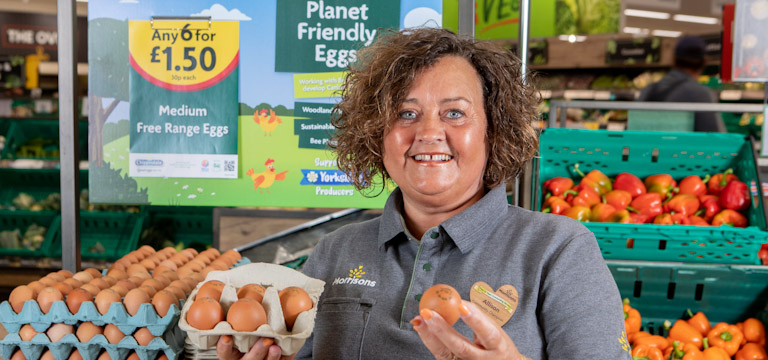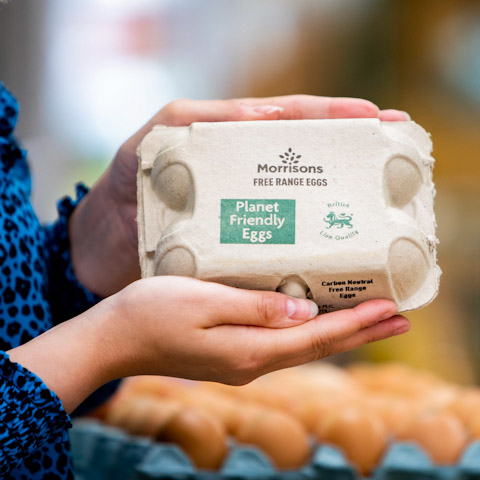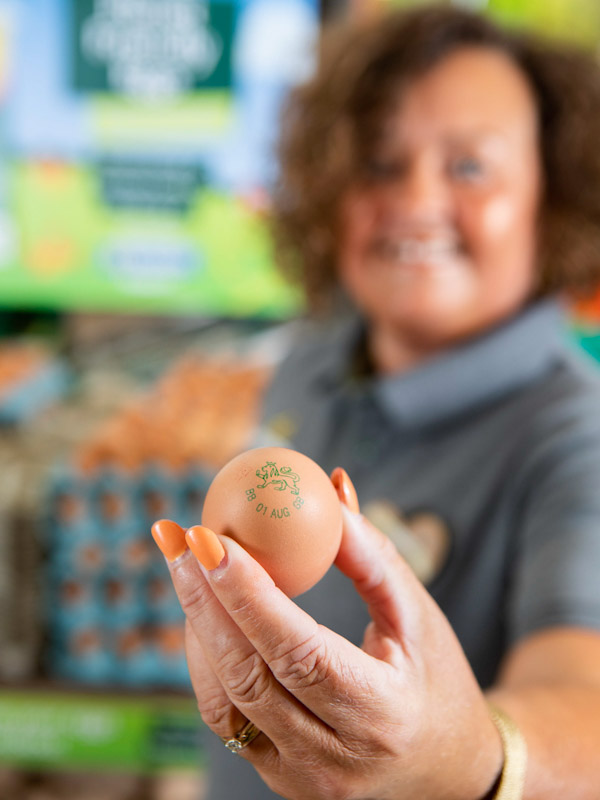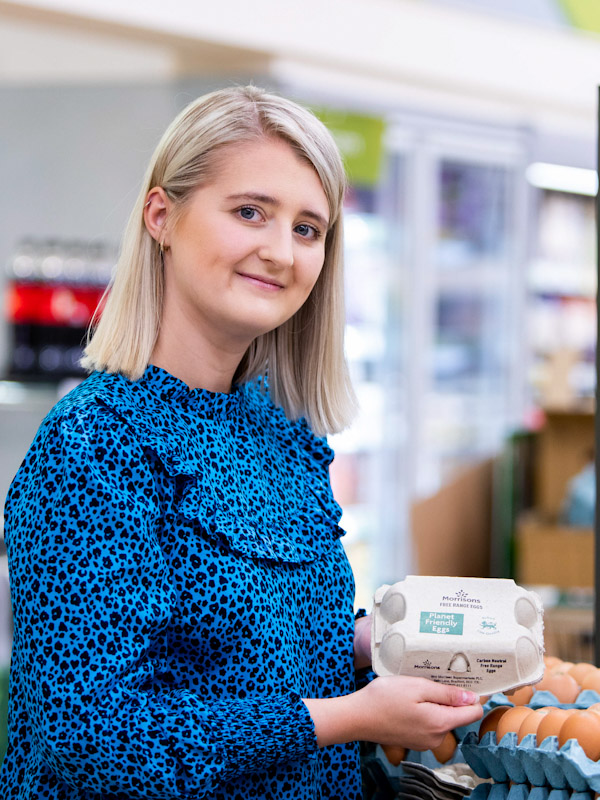References:
* Insects are a natural part of a bird's ancestral diets and wild birds forage for insects, as they are nutritious and rich in essential amino acids and healthy fats. They have no detrimental impact on the quality, taste or shelf life of the hen’s eggs. In time, there will be up to 320,000 free range hens on Morrisons farms that can lay millions of carbon neutral eggs each year.
An insect ‘mini farm’ was introduced onto the egg farm to feed the hens. The ‘mini farm’ container, in which millions of insects are kept, was developed by agritech company Better Origin. Each container can help feed 32,000 free range hens and receives three tonnes of waste from Morrisons fruit and vegetable site each week. The insects can grow to 5,000 times their initial body mass in less than 14 days.
Soya typically accounts for 10-20% of a hen’s normal diet. Up to 70% of the emissions from the UK’s supply chain for chicken is attributed to feed, of which soya is a major contributor. Reducing soya and feeding insects food waste on initial 10 farms alone is expected to save 56 hectares of South American land from deforestation every year, where half of the world’s soybean is currently farmed. It will also reduce CO² emissions by 5,737 tonnes and save 40 billion litres of water annually.
** Better Origin is a Cambridge based British start-up and agritech company that helps fix broken food chains with AI-powered insect mini-farms inspired by waste cycles found in nature.
*** Analysis of Morrisons Egg Carbon Calculation System a report by the Centre for Industrial Sustainability (CIS), based at the Institute for Manufacturing at the University of Cambridge. https://www.ifm.eng.cam.ac.uk/research/industrial-sustainability/industrial-sustainability-projects/morrisons-egg-carbon-calculation-system/
**** All eggs that carry the British Lion mark meet the stringent requirements of the British Lion Code of Practice which ensure the highest standards of food safety.








